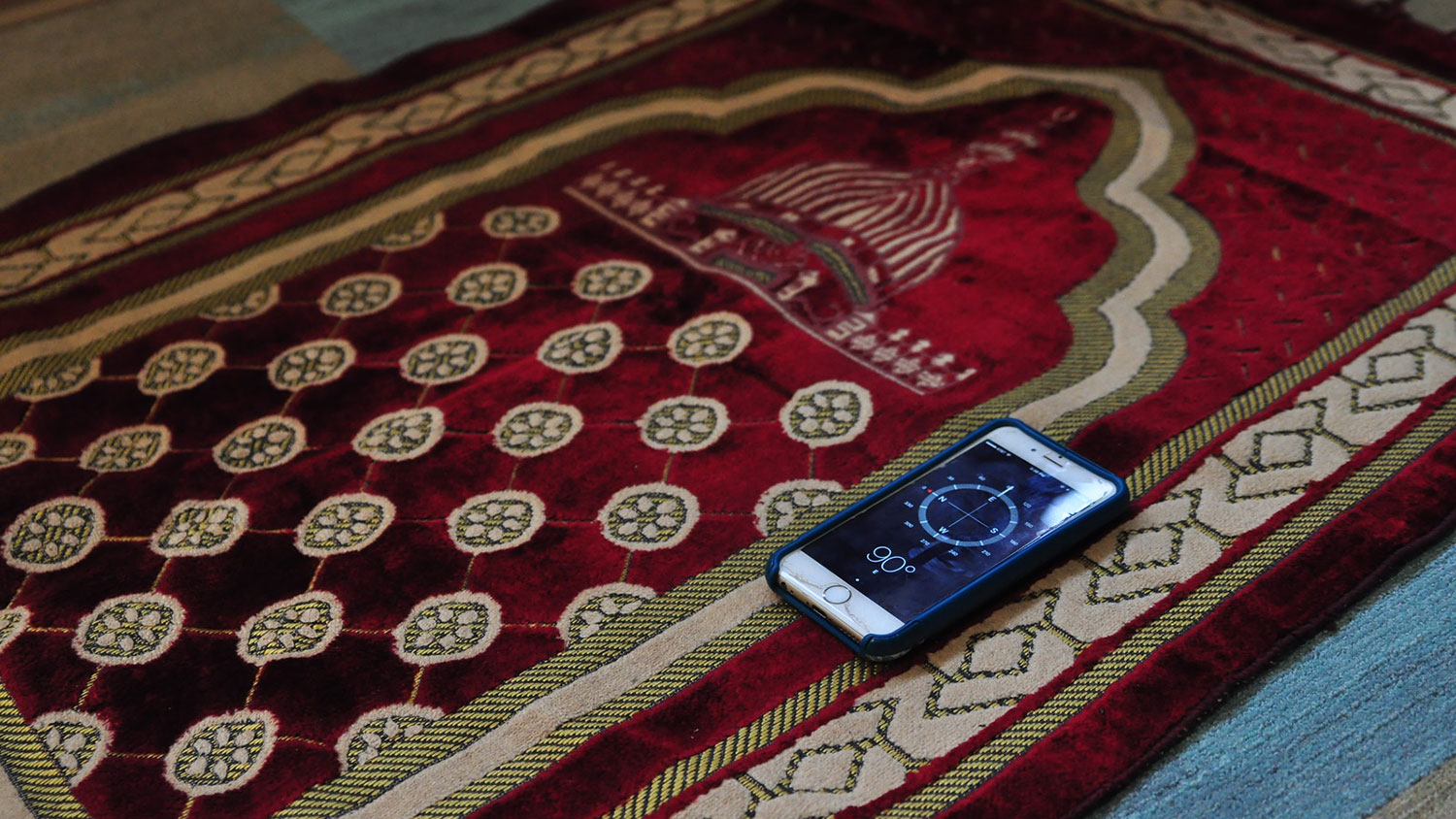Interfaith Prayer and Meditation Spaces Promote Well-Being

For some, being in D.H. Hill Library can put them at their lowest as they nervously prepare for an upcoming exam or face a looming deadline. For others, though, being at their lowest point means something else — for Muslims, being at their lowest point during the Sujud position in Muslim prayer while in D.H. Hill’s prayer and meditation space is incredibly humbling and uplifting.
“There’s a portion of prayer where we are at our lowest point and our foreheads are on the ground. We say ‘Oh, praise to my God, the most high’ and add any other supplications we want to; it’s very humbling and reminds us of our purpose,” says Salam Ibrahim, a third-year industrial engineering student at NC State who makes use of the prayer and meditation spaces to engage in Muslim prayer. “The new prayer space is really nice and spacious, and since we pray five times a day, usually around three of the prayers fall during my typical school day.”
Across campus, the Office for Institutional Equity and Diversity oversees several interfaith prayer and meditation spaces that encourage peace and reflection for religious and non-religious faculty, staff and students. These spaces are located in D.H. Hill Library, Engineering Building II, Witherspoon Student Center and Talley Student Union. The spaces are available for individuals to use without a reservation whenever the campus building is open. (For Talley’s space in the Cultural Hearth on the Cates Avenue side of the ground floor, simply ask at the information desk to be given access to the space.)
Providing safe, semi-private spaces for spiritual and religious activities is a vital form of support NC State offers its faculty, staff and students. “I love walking into the prayer space and seeing my Muslim friends and classmates. I know we all consider it a safe space,” says Ibrahim.
And the accessibility and availability of these spaces throughout the day is essential for Muslims on campus, as according to Islamic practice, Muslims are required to pray five specific times of the day. Salat is the obligatory Muslim prayers, and these prayers are more than just words — they unite the mind, body and soul in worship and consist of a series of movements.
Apart from prayer, the spaces can be used by anyone to meditate, decompress and reflect. All users of the spaces are expected to exercise mutual respect for others’ cultures, beliefs and traditions.
Other resources and opportunities available to promote and ensure faculty, staff and student wellness are available from Student Health Services, which provides a variety of campus resources.
Jenna Nabors is a third-year student majoring in communication and international studies and is a Park Scholar. Share your thoughts about this article on Twitter at @NCStateOIED.
- Categories:


